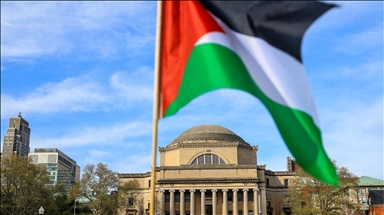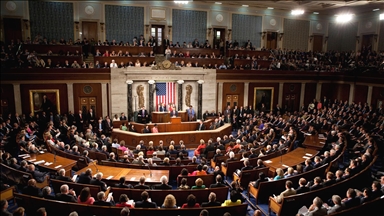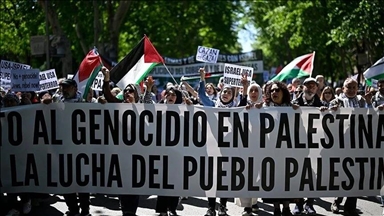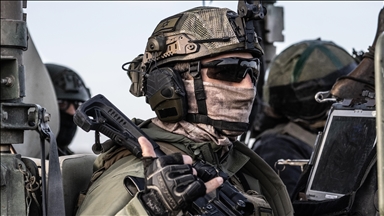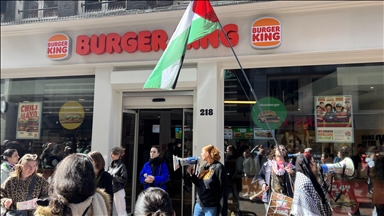Palestinian prisoner who became face of Second Intifada
Vegetable vendor Zakaria Zubaida became symbol of Al-Aqsa uprising also known as Second Intifada against Israeli occupation
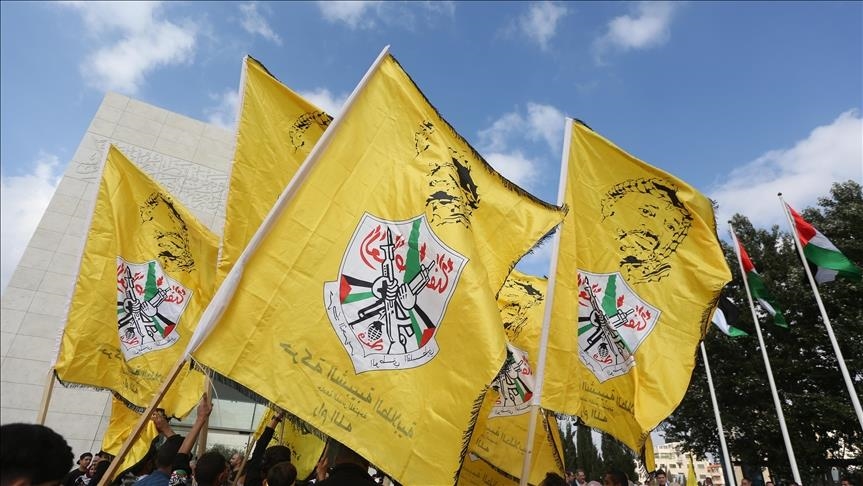
JENIN, Palestine
Palestinian vegetable seller Zakaria Zubaidi’s simple life took a turn on Sept. 29, 2000, coinciding with the launch of the Al-Aqsa uprising also known as the Second Intifada.
Born in Jenin camp in 1976 and witness to the demolition of his home by Israeli soldiers in 1988, Zubaidi became one of the leaders of Al-Aqsa Martyrs' Brigades (the military arm of Fatah) during the Second Intifada.
“Like the other youth on the camp, he joined the military resistance since the beginnings of the Intifada. It was real hope of salvation for them after the failure of the Oslo Agreement,” said Yahia Zubaidi, younger brother of Zakaria living in Jenin camp.
Considered a symbol of the Intifada, he was arrested in 2019 and charged before a military court. On Sept. 6, 2021 he escaped from the Gilboa Prison in Israel's North, together with five other Palestinian prisoners, but was caught near the village of Kfar Tavor on Sept. 11.
On Sept. 28, 2000, right-wing Israeli opposition leader Ariel Sharon visited the Al-Aqsa Mosque compound in occupied east Jerusalem.
Palestinians protested the next day, leading to the series of killings, that triggered an uprising, which ended in February 2005, with a joint announcement by Sharon, who had then become prime minister of Isreal and Mahmud Abbas, successor to the late Yasir Arafat as head of Palestinian Authority.
The next day, the first Palestinians were killed. An advisor to the Palestine Liberation Organization's leader Yasser Arafat accused Sharon of sparking a religious war.
“Since we were children, we dreamed of the right of return all the time, but the occupation never let us even dream. From our childhood until today we live daily suffering, our home destroyed, years later the Israeli army killed my mother and brother, and arrested us, the five brothers,” said younger Zubaidi.
Caring brother
He also recalls that when his face was burned in 2001 and he had to stay in a hospital for a month, the elder brother was with him all the time.
“He never left me alone every moment at the hospital, even when my mother was visiting us and asking him to go back home to rest,” he said.
Months later, a mortar shell exploded in Zakaria’s face causing severe and chronic weakness in his sight and deformities.
During the Second Intifada, the Israeli army attacked Zakaria’s house and killed his mother in March 2002. A month later his brother Taha was also killed.
“He got married during the Intifada. But he could not live as any father with his children because of facing Israeli prosecution,” said Zubaidi.
There were at least four attempts to assassinate him and he was injured several times.
In 2007, the Palestinian Authority signed a political agreement with Israel under which Israel did not arrest Zakaria, but restricted his movement.
He lived with his family for five years, until in 2012, the Palestinian Authority detained him on allegations that he was involved in shootings of Israeli settlements during the 2012 war on Gaza.
Pursued education in prison
“He earned his bachelor's degree during his detention in Palestinian Authority prisons. And in 2018 he joined Birzeit University to pursue a post-graduate degree, but then the Israeli army arrested him,” Yahia said.
On the morning of Sept. 6, Yahia said he was surprised after learning that his brother was one of the six inmates who had escaped from Gilboa jail.
“I was happy and worried. I dreamed to see him even just for a moment,” Yahia said.
The younger brother, who lived with Zakaria for just four months at various times from 2002 to 2018, is hopeful to meet his brother when he is free. He said Zakaria can surprise you at any time.
“I’m waiting for him and his fellows to hear the story from them. They're seekers of freedom,” Yahia said.



